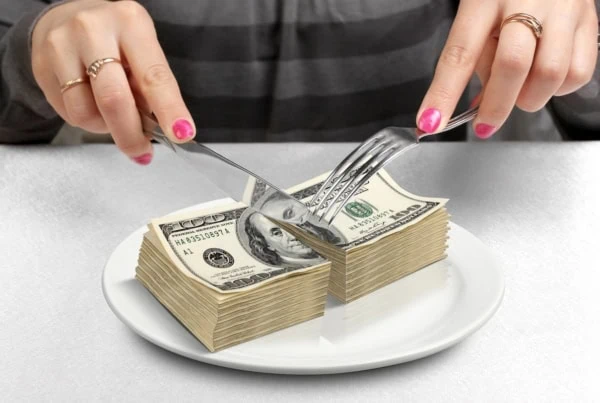I’m not suggesting you need to become a strict Buddhist monk and divest all of your worldly possessions … but most people would benefit from becoming a little more minimalist.
“Mess is stress,” psychotherapist Jourdan Travers says in Discover magazine. “Humans have limited bandwidth, and it isn’t easy to focus on essential tasks when we are in messy or unclean spaces.”
Left unchecked, clutter can build up and become overwhelming. In extreme cases, it can lead to hoarding and make everyday life more challenging. The solution? Decluttering. It can give us more space, make it easier to clean, calm our minds … and if you’re ridding yourself of some more valuable unneeded possessions, you might earn yourself some extra spending money, too.
That said, letting go of these items can be easier said than done.
What’s the best way to determine which items you need and which ones you don’t? If you’ve reached the point where you know something (or many somethings) need to go, but you aren’t sure which things to put on the chopping block, keep reading. I’ll run you through a list of some of the best objects to ditch if you’re trying to become more minimalist.
How to Become More Minimalist

The first step on the path to a tidier life is admitting to your clutter … which, in a way, you’re already doing by reading this article and seeking out a solution.
The best way to live more minimally is to be proactive—avoid overbuying items that you use once and never use again, and that really don’t bring you any enjoyment once they’re just sitting around. Fast fashion outfits. Keychains from vacations that end up sitting in a drawer.
But if you don’t live that way already, you need to get there. And that starts with getting rid of some of the junk you’ve already accumulated.
Here are some things that you might initially struggle to part with, but that you’re unlikely to miss soon after they’re gone.
1. Old Food Containers
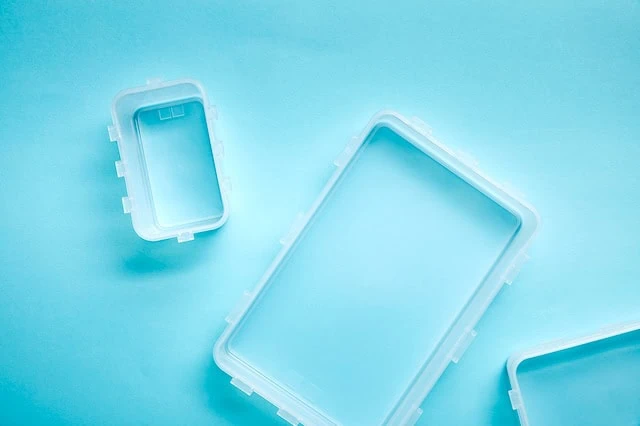
Disappearing food container lids are one of life’s great mysteries. Where do they go? Are they in cahoots with the single socks that escape from the dryer?
Listen, reusable containers are an easy way to store leftovers, pack lunches, or give people treats. But they’re also really easy to accumulate—and they often stick around well after their usable life. Frequently, you’ll look in your cabinet to find a certain number of plastic food containers, and a different, smaller number of accompanying lids.
Well, rather than constantly trying to play Tetris with your Tupperware, I’m giving you the green light to toss some of these containers out. By all means, keep your nice glass Pyrex set … but the old plastic yogurt container that’s been missing a lid for two years? That has to go. And no, you won’t miss it.
By the way, there’s another reason past decluttering for ditching some of those, ahem, vintage plastic containers. Any of those that were created with bisphenol A (commonly called BPA) could be bad for your health. A few of the health risks associated with BPA include, but aren’t limited to, heart disease, infertility, polycystic ovarian syndrome, endometriosis, and ADHD. Plastic is also prone to scratches (giving bacteria a place to live), and heating plastic in the microwave can transfer chemicals to your food.
Related: 10 Items You Should Always Buy New
2. School + Event T-Shirts

When I was in high school, I participated in almost every extracurricular activity available. Every play, sport, and special event meant a new T-shirt to add to my collection. And the school tops continued to pile up when I went to college.
Needless to say, these school T-shirts took up way more than their fair share of closet space.
If you’re going full minimalist, you should throw any of these shirts unless you wear them frequently. But if you’re as sentimental as me, let me offer up another option: a T-shirt blanket. Some people quilt together patches from their favorite shirts (or have someone better at sewing do it for them). It’s a way to hang on to the memories while freeing up space in your closet.
Related: Frugal vs Cheap: What’s the Difference?
3. Clothes You Never Wear

Actually, let’s extend this idea to all the rest of the clothes you never wear.
The National Association of Professional Organizers estimates that 80% of a person’s clothing is only worn 20% of the time. You know that 80% isn’t being spread around evenly, either—a few articles of clothing might account for that 20%, while many other articles aren’t being used at all!
Just be honest with yourself. You’re not going to shorten and wear that bridesmaid dress. If those clothes from 10 years ago haven’t inspired you to lose weight yet, get rid of them. (And if you do find a better source of weight-loss inspiration that actually works, buy smaller clothes then.)
Getting rid of clothes you’re unlikely to wear again gives you more closet space and reduces decision fatigue about what to wear each day. You might also be able to earn some money selling those clothes at a garage sale or on an online marketplace like Poshmark. Anything too raggedy to resell could be cut up and used as rags for cleaning your home.
Related: 10 Items You Should Always Buy Used
4. Mystery Cords + Outdated Electronics
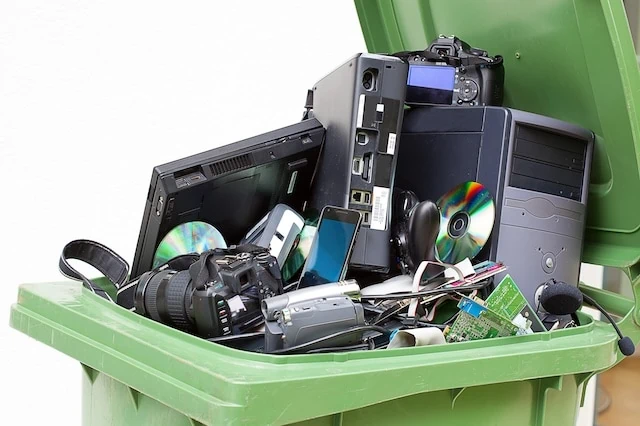
A friend recently sent a group message on Snapchat announcing she and her husband finally got rid of their entire box of mystery cords.
If you’re suddenly anxious because you “know” that you’ll need a charger or RCA cable as soon as you get rid of it … well, that’s probably never going to happen. Random cords languishing at the bottom of some drawer almost always belong to technology you won’t use anymore.
Ditch them. And while you’re at it, get rid of obsolete technology you’re hanging onto, too. Do you really need your old-school pedometer when your phone or watch will track your steps? Are you really going to go back to your old iPhone 3G? When’s the last time you used that DSLR camera? (If you can’t remember the answer to that last question, consider selling or giving it to someone who enjoys photography more.)
Related: From Innovation to Obsolete: 10 Disappearing Technologies
5. Expired Makeup
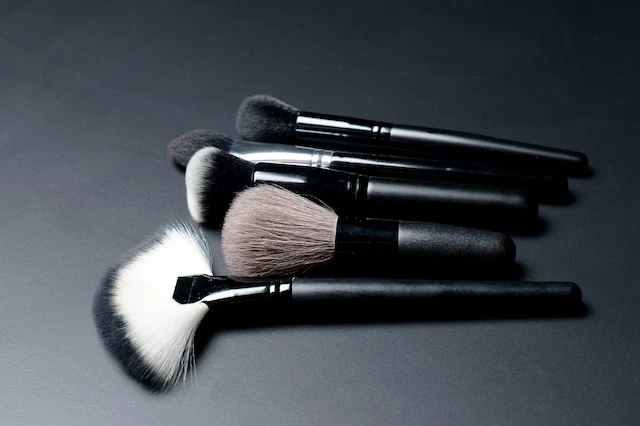
Waiting for your favorite makeup styles to become popular again? While you’ve been waiting, some of that makeup has probably expired.
Properly stored powder products are typically good for up to two years. Lipstick, cream-based foundation, and blushes can usually be used for six months to a year. However, your mascara and liquid eyeliners may not be safe after as little as three months!
Take a look through your makeup bag and throw out any expired or questionable makeup. Even if it looks fine, if it’s well past its expiration date, it could be full of bacteria, which could lead to an infection.
While you’re at it, you might also want to cut down your makeup routine going forward and stick to the basics. You could save a lot of time and money if you pare your 16-step routine down to a few key products.
Related: 14 Items to Buy in Bulk + 7 You NEVER Should
6. Unused Kitchen Tools
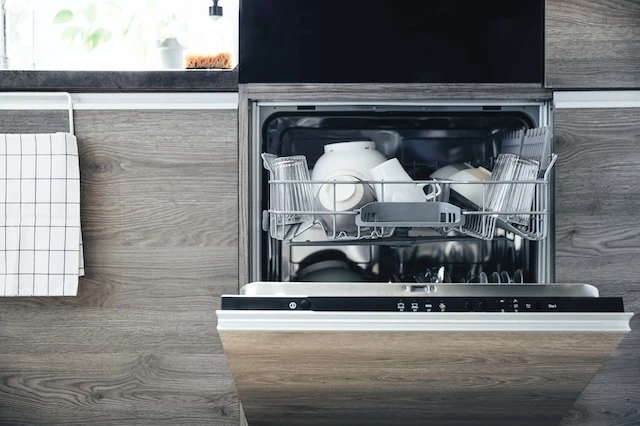
Do you have an apple corer and banana slicer even though you always bite directly into both fruits? How about a dough roller even though you never make homemade dough? Are these tools stored next to the salad spinner, garlic press, and strawberry stem remover that you also haven’t touched in years?
Keep essential kitchen tools, but get rid of the ones you never use. It’s not worth storing a product that only comes in handy once out of every five years (if you even remember you have it).
Meanwhile, decluttering your kitchen cabinets will keep you more organized, saving you time and stress when you’re looking for tools that you actually need and use.
Related: 20 Big-Ticket Items Worth Splurging On
7. Bills, Documents, and Other Paper

A single piece of paper is razor-thin, but get enough of them together, you’ll have a heavy pile of uselessness just sitting in your way.
It’s smart to keep some paper documents around. You’ll want to keep old tax returns around for at least three years. You should hang on to your mortgage and other important home documents. You might want to keep medical history documents, too.
But except in a few very specific situations, you probably don’t need to keep that phone bill from six months ago, or that credit card statement from last year.
Paper bills are an extremely common form of clutter—and one you can get rid of going forward by switching to digital payments. (In some cases, you might even receive a discount for opting out of paper statements!) And if you set up autopay, you’ll ensure your payments are always made on time.
Bills aren’t the only paper product that accumulates, either. You can also go digital with calendars and planners. Maybe hold on to an old wedding invitation and other emotionally significant cards, but let go of old birthday cards and thank-you notes with no sentimental value. (And if you truly love every card you get, consider snapping a few photos to preserve the memory so you can get rid of the clutter regret-free.)
Related: 10 ‘Frugal’ Habits That Aren’t Actually Saving You Money
8. Digital Clutter

How many emails are sitting in your inbox right now? Dozens? Hundreds? Thousands?
Sure, digital clutter won’t get in your way as you walk around your house … but it can feel just as mentally overwhelming as a physical mess.
“Studies show that digital clutter is just as toxic to your mental health as physical clutter,” says Susan Albers, psychologist at the Cleveland Clinic. She adds that it can “trigger high levels of anxiety and stress,” and that clearing out digital clutter can make you feel more empowered.
Start by cleaning out your email inbox. You can unsubscribe to email lists you no longer want to be on (like lists you joined just to enter a contest). Unsubscribing takes a few more clicks than simply deleting an email, but it’s a proactive step that saves time in the long run. Then archive any emails that don’t need attention. By archiving emails rather than deleting them, you’ll be able to find them again if they do turn out to be important. Until then, you’ll have a cleaner inbox—one where it’ll be easier to see emails that still need action.
A few other types of digital clutter to consider clearing out are unused phone apps and unneeded documents on your desktop.
Related: Always Buy The Cheapest Versions of These Products
9. Equipment From a Hobby You Dropped

We’ve all tried out a hobby and discovered it just wasn’t a great fit.
Maybe you thought painting would be soothing, but soon after stocking up on paint and canvases, you realized you can’t stay focused. Or perhaps your nurturing side tried out gardening only to realize you couldn’t even keep a plastic plant from drooping.
If you’ve given up a hobby, it’s time to get rid of all of that hobby equipment.
This can be excruciating if it was an expensive purchase. But that surfboard is just going to remind you how many times you fell and you’re unlikely to miss its presence. And besides: You might be able to sell it and get at least some of your money back.
Other items might be prime for donation. For instance, a school or assisted living facility will happily take crafting supplies off your hands.
Related: Food Costing a Fortune? Here’s 12 Tips for How to Save Money on Groceries
10. Unwanted Gifts

A holiday or your birthday rolls around. You tell your family and friends that you’d prefer not to receive any gifts. And yet, on the big day, you’re staring at a pile of presents. You smile and say your thanks. Then you hold on to those items out of guilt—even if you know you’ll never use them.
If you have unwanted gifts that only serve to clutter up your house, don’t be shy anymore. Sell them. Donate them. Regift them. Or repurpose them.
You can use word of mouth or online marketplaces to sell unwanted gifts and use the money to buy something you would use. There are even apps and websites that will buy your gift cards!
Alternatively, you can donate items. Don’t assume only thrift shops take donations—some items might be appropriate to give to a local homeless shelter, food pantry, or other nonprofit.
Know somebody who would love your gift? Give it to them! (But maybe avoid doing so in situations where the original gifter would find out.)
Some items can also be repurposed. Never going to drink that wine? Use it for cooking. Cabinets too packed for another mug? Use it as a flower pot.
Related: Stop Shrinkflation! 14 Products Affected + Tips to Save Money






